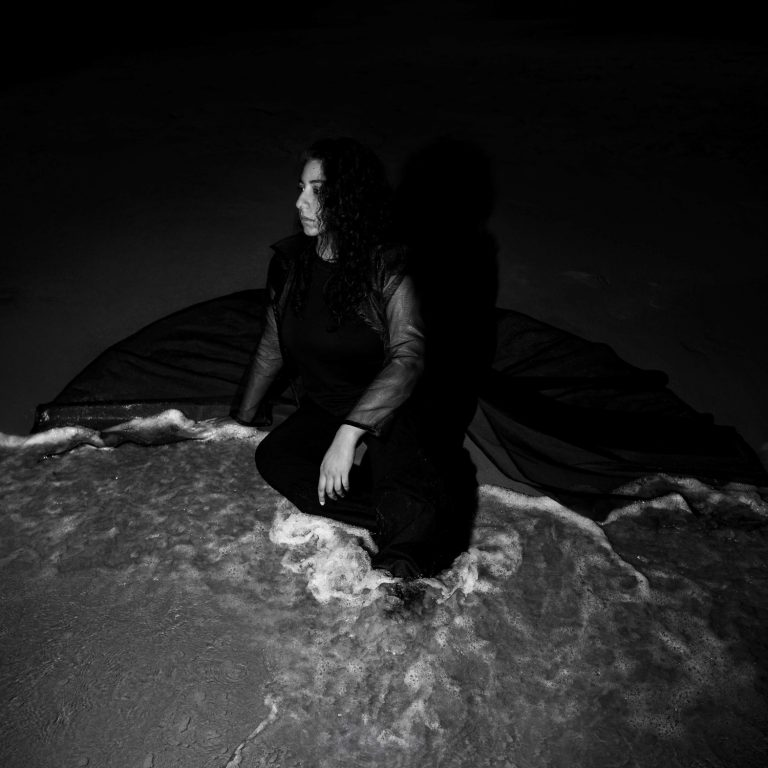About a week before the album’s release, a reminder from Arooj Aftab’s US-market publicity team announced a few interview slots had opened up. For context it noted that Aftab is based in New York City, which is kind of disappointing. Nothing against New York, just that it’s not far-flung or some alternate plane.
A mid-century jazz history once began its tale of Sun Ra on Chicago’s post-war South Side, and somewhere in a car on the route to Gary, Indiana, he left for outer space. This is the kind of myth Aftab deserves: unshackled from gravity and geography, like those outstanding mortals who caused Greek and Roman gods to lust for them. Perhaps her parents were cosmically intercepted on the route from Pakistan to Riyadh and back to Lahore, and she was cast fully formed into New York from a portal in the Spider-verse.
Wager that she feels like a space alien herself. As the album notes suggest, Night Reign is darker than dark with only Aftab’s voice as a guide; yet it upturns the unlikeliest of finds. The number of people who still listen to the standard “Autumn Leaves” in 2024 must be extremely finite – extraterrestrial to American millennials – yet on the album she rekindles an argument she started with Nat King Cole or Chet Baker on her radio in the 90s. In Pakistan. Probably also where she fell under the influence of John Fahey… and Chicago’s post-rock scene.
Immediately, Night Reign enchants with invisible possibility, i.e. all those things that can’t be seen but surely must be there. Aftab is become night. But its mystery deepens with all the interwoven, semi-arcane touches. “Aey Nehin” opens like being beckoned behind the curtains; Kaki King’s laced, looped guitar figure never finds a place to rest while Aftab’s vocal – even when emboldened by harmonies – likewise tries to settle on notes that aren’t meant to hold much weight. She delivers an incantation and disappears like smoke. It feels purposeful: a long night has begun.
“Na Gul” then stuns with its pillow-like major chords and deep, yoga exhalations. Maeve Gilchrist’s spindling harp scatters rose petals as Aftab extinguishes candles. It has an improvisational flair, akin to Van Morrison’s Astral Weeks, yet communal and not indulgent. It’s awoken by an “Autumn Leaves” in the throes of possession. It’s not Cole, Baker, or Cannonball Adderly, but the ghost of Harry Belafonte stood in the bedroom window waiting for his lover to come home. Aftab’s delivery startles: dead eyes fixed on the horizon. James Francies’ electric-piano solo has the demonic effect of soundling like it was recorded backward and suddenly we’re in the midst of a terror.
Night Reign becomes engulfed in a remorseless, distorted bass guitar, like the lumbering, apocalyptic foreshadowing of Megadeth’s “Dawn Patrol”. “Bolo Na” nominally features Moor Mother’s spoken, nearly sadistic interrogation of Love, but it’s Shahzad Ismaily who really stars: drawing on every remaining strand of his biochemistry Master’s so his bass can scorch the earth underfoot. Just as her coterie begins to take charge, however, Aftab retakes the spotlight with the lush “Saaqi”. Effectively a soliloquy, she takes a poem written by the 18th-century Hyderabad noblewoman Mah Laqa Bai Chanda and fills it with warmth. “Raat Ki Rani” keeps the lights low so the titular flower (queen of the night) can filter its fragrance through the heavy air. Its clacking, Latin rhythm has the sleep-inducing meter of a passenger train and cushioned piano chords lower the heartrate still further. Aftab sings for the first time with a light touch of auto-tune, which effectively disembodies her voice.
Before closing and going home with Shamim Jaipuri’s poem “Zameen”, “Whiskey” comes to terms with what turns out to be an album-long treatise on love. The emotional and theoretical aspects out of the way, she assesses a flawed, drink-loving co-human and decides she can work with imperfection. The moment is captured in bright, awakening tones where dawn is first noticed by the ears. Dawn in New York, where she lives. Spectacularly, among us.


